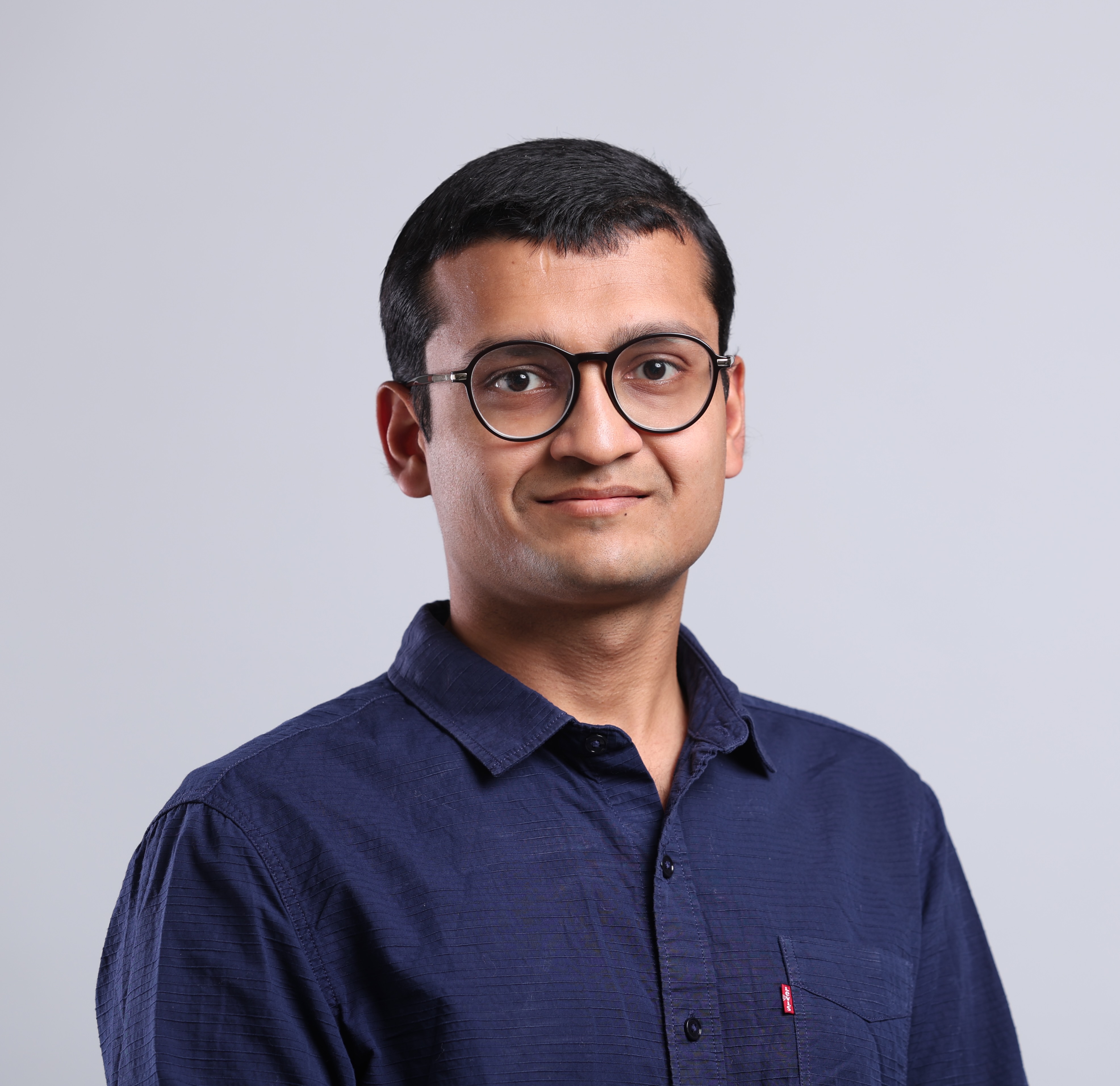Dhruv Kumar
• Assistant Professor at BITS Pilani • Adjunct Faculty at IIIT Delhi
• Post-Doc from Microsoft Research • PhD from UMN Twin Cities

6120-N, NAB
BITS Pilani
Pilani, Rajasthan - 333031
I am currently an assistant professor at BITS Pilani. I am also an adjunct faculty at IIIT Delhi where I was previously a full-time faculty from 2022 to 2024. I continue to collaborate closely with students and faculty members at IIIT Delhi.
Before joining IIIT Delhi, I was a Post-Doc Researcher at Microsoft Research. Prior to Post-Doc, I completed my PhD under Abhishek Chandra in the Computer Science Department at the University of Minnesota, Twin Cities, USA. During my PhD, I also collaborated with Ramesh Sitaraman at University of Massachusetts, Amherst, USA. Long time back, I graduated in 2014 with a Bachelors in Computer Science from BITS, Pilani.
I consider myself a scientist before a computer scientist. Hence, I am interested in solving real life problems even if they are simple and/or not strictly related to computer science. I am particularly interested in solving problems which are specific to developing countries such as India.
As part of computer science research, I am primarily interested in Generative AI, Large Language Models, Agentic AI and Computing Education. Sometimes, I also work on topics related to Human-computer Interaction, ICT4D and Distributed Systems.
News
Selected Publications
- ICER 2025Rubric Is All You Need: Improving LLM-Based Code Evaluation With Question-Specific RubricsIn Proceedings of the 2025 ACM Conference on International Computing Education Research V.1, 2025
- arXiv 2025
- arXiv 2025Investigating Pedagogical Teacher and Student LLM Agents: Genetic Adaptation Meets Retrieval Augmented Generation Across Learning Style2025
- IEEE Access 2025
- arXiv 2025The Impact of Large Language Models on K-12 Education in Rural India: A Thematic Analysis of Student Volunteer’s Perspectives2025
- Sci Rep 2025The role of generative AI tools in shaping mechanical engineering education from an undergraduate perspectiveScientific Reports, 2025
- arXiv 2025Sakshm AI: Advancing AI-Assisted Coding Education for Engineering Students in India Through Socratic Tutoring and Comprehensive Feedback2025
- arXiv 2025
- arXiv 2024TAMIGO: Empowering Teaching Assistants using LLM-assisted viva and code assessment in an Advanced Computing Class2024
- arXiv 2024
- COMPASS 2024
- arXiv 2024
- CHI LBW 2024From Cash to Cashless: UPI’s Impact on Spending Behavior among Indian Users2024
- ACE 2024"It’s not like Jarvis, but it’s pretty close!" – Examining ChatGPT’s Usage among Undergraduate Students in Computer Science2024
- SIGCSE TS 2024ChatGPT in the Classroom: An Analysis of Its Strengths and Weaknesses for Solving Undergraduate Computer Science Questions2024
- AIware 2024
- arXiv 2023"With Great Power Comes Great Responsibility!": Student and Instructor Perspectives on the influence of LLMs on Undergraduate Engineering Education2023
- CCGrid 2023AggFirstJoin: Optimizing Geo-Distributed Joins using Aggregation-Based TransformationsIn 23RD IEEE/ACM INTERNATIONAL SYMPOSIUM ON Cluster, Cloud and Internet Computing, Bengaluru, India, May 1-4, 2023, 2023
- IPDPS 2022HACCS: Heterogeneity-Aware Clustered Client Selection for Accelerated Federated LearningIn 2022 IEEE International Parallel and Distributed Processing Symposium, IPDPS 2022, Lyon, France, May 30 - June 3, 2022, 2022
- SEC 2021AggNet: Cost-Aware Aggregation Networks for Geo-distributed Streaming AnalyticsIn 6th IEEE/ACM Symposium on Edge Computing, SEC 2021, San Jose, CA, USA, December 14-17, 2021, 2021
- SIGMETRICS 2019A TTL-based Approach for Data Aggregation in Geo-distributed Streaming AnalyticsSIGMETRICS, 2019